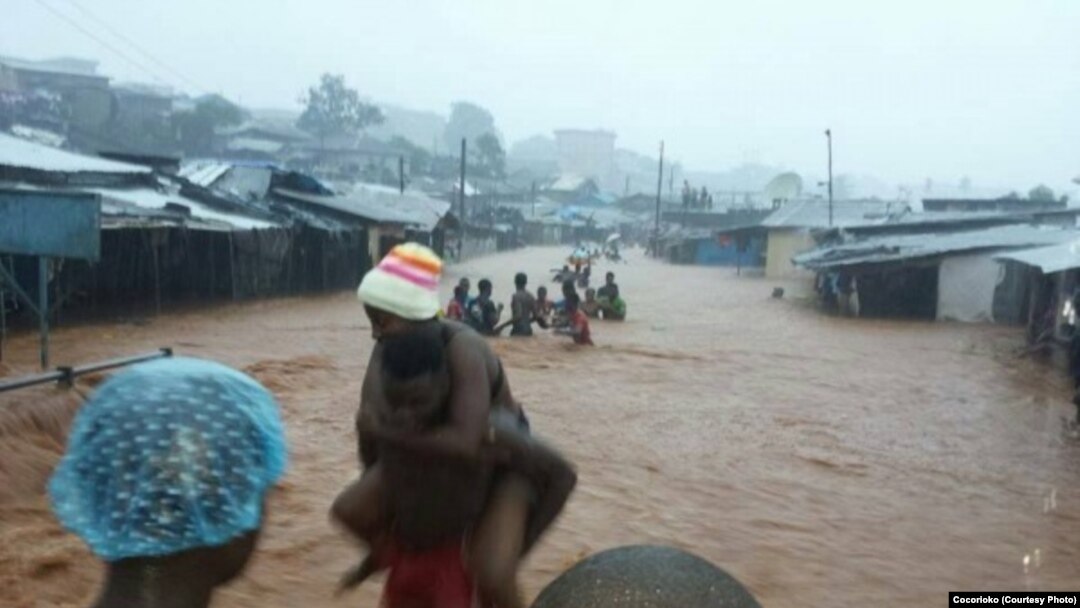Heavy flooding in Freetown, Sierra Leone has killed at least 12 people and displaced thousands more from homes that were damaged or destroyed. Emergency accommodations have been set up at the National Stadium to help deal with the disaster.
People are sitting in the bleachers, some are laying on mattresses provided, while others line up for food and water.
Naomi Koroma is one of the thousands of people displaced.
She sits in the packed stadium cradling her newborn, only two days old.
Koroma says she is scared and confused. Her house is still standing in her community called Congo Town, but not her belongings.
“All my things in my house were damaged, money, my clothes, all my items, everything just washed away," said Koroma.
According to Indrias Kassaye, a communications specialist for UNICEF, almost 4,000 people have been registered so far at the stadium. He says the U.N. agency is helping women like Koroma by offering a medical clinic for children under five.
He adds that with an Ebola crisis still in effect, things can be challenging.
Sierra Leone was on a 42-day countdown to being declared Ebola free. But two districts are now in quarantine, after two deaths and several new cases.
“The floods came at a difficult time, as Sierra Leone is fighting to reach zero, in terms of Ebola and the affected communities, they are amongst some of the high risk communities for Ebola in the Freetown area, so definitely the Ebola response is part of overall package provided by UNICEF and partners here at the stadium," said Kassaye.
He says crowding at the stadium can create risks for other diseases. So the response includes making sure proper hygiene is in place, such as additional clean toilets and hand-washing facilities.
Sierra Leone faces floods during its annual rainy season, but the effect of flooding this week was particularly bad. Deputy government spokesman Agibu Jalloh says one reason is overpopulation and people cutting down trees to build more houses. Trees help control soil and water, which helps stop major flooding.
He also says many people are living in unsafe flood prone areas.
“They have been building houses in creeks, they have been building under bridges, in slum areas, this has not helped at all," said Jalloh.
Jalloh says the government is looking to move people affected by flooding to low-cost housing in safe areas.



